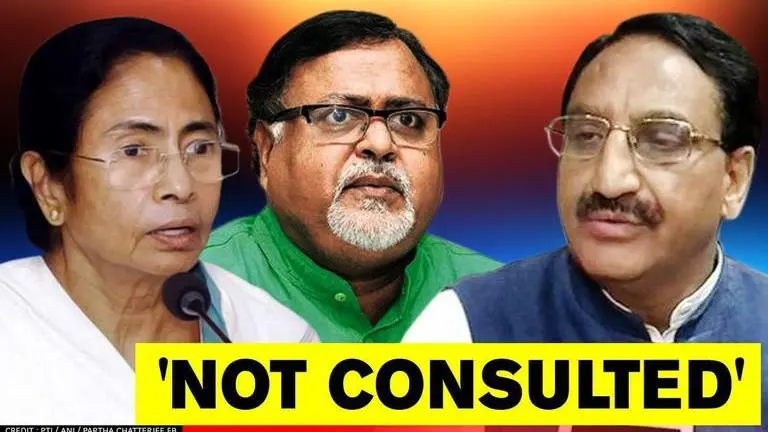Updated 7 August 2020 at 18:29 IST
'No one from State was consulted': West Bengal Education Minister fumes over NEP 2020
In a big claim on Friday, West Bengal Education Minister Partha Chatterjee alleged that no one from the State was consulted on National Education Policy 2020.
- India News
- 2 min read

In a big claim on Friday, West Bengal Education Minister Partha Chatterjee alleged that no one from the State was consulted on the National Education Policy 2020. Earlier, he had termed it as a "copy of the system prevalent in Western countries". The State government has formed a 6-member committee to study the NEP and share their observations by August 15.
Jadavpur University Vice-Chancellor Suranjan Das, TMC MP Sougata Roy, and educationist Pabitra Sarkar are among the members of the panel. Also, views of school teachers and university professors on the policy shall be solicited. Chatterjee stated that the State government would convey its opinion on the NEP to the Centre after the committee submits its report.
The National Education Policy
On July 29, the Centre unveiled reforms in the school education and higher education sector as a part of the new National Education Policy, devised after a gap of 34 years. This includes a new curriculum for early childhood care education, focus on literacy and numeracy and Gender Inclusion Fund. Essentially, the 10+2 system has been divided into the 5+3+3+4 format. This implies 5 years of foundation stage- three years of primary school and Classes 1 and 2, two years of the preparatory stage- from Classes 3 to 5, the middle stage comprising Classes 6 to 8 and 4 years of the secondary stage- Classes 9-12. The schools shall not have a rigid separation between arts and sciences, curricular and extra-curricular, and vocational and academic education.
Advertisement
PM Modi welcomes NEP
Prime Minister Narendra Modi wholeheartedly welcomed the NEP 2020, describing it as a "much-awaited" reform in the education sector. He mentioned that the NEP is based on access, equity, quality, affordability, and accountability. According to him, the policy will transform India into a vibrant knowledge hub. PM Modi added that undergraduate education would include multiple entry and exit options, besides offering flexible curricula, a creative combination of subjects, and integration of vocational education.
Maintaining that NEP promoted Indian languages such as Sanskrit, he stressed that multiple foreign languages would be offered at the secondary level. In an important development, he announced that the Indian Sign Language shall be standardized across India. Terming the framing of NEP as a "shining" example of participative governance, PM Modi thanked everyone who worked hard in its formulation.
Advertisement
Published By : Digital Desk
Published On: 7 August 2020 at 18:29 IST
